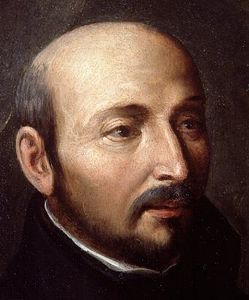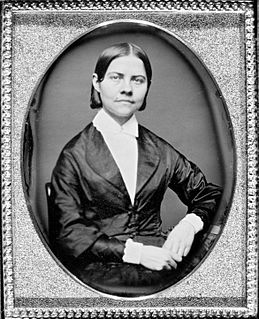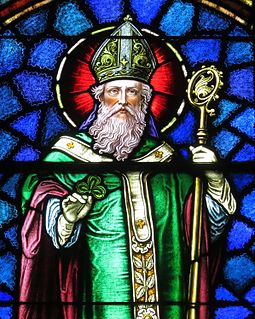A Quote by Stormie Omartian
People's love for us may change, depending on what we do or don't do to please them. But God's does not-it's everlasting.
Related Quotes
The problem of reconciling human suffering with the existence of a God who loves, is only insoluble so long as we attach a trivial meaning to the word "love", and look on things as if man were the centre of them. Man is not the centre. God does not exist for the sake of man. Man does not exist for his own sake. "Thou hast created all things, and for thy pleasure they are and were created." We were made not primarily that we may love God (though we were made for that too) but that God may love us, that we may become objects in which the divine love may rest "well pleased".
Guidance, like all God's acts of blessing under the covenant of grace, is a sovereign act. Not merely does God will to guide us in the sense of showing us his way, that we may tread it; he wills also to guide us in the more fundamental sense of ensuring that, whatever happens, whatever mistakes we may make, we shall come safely home. Slippings and strayings there will be, no doubt, but the everlasting arms are beneath us; we shall be caught, rescued, restored. This is God's promise; this is how good he is.
The Christian is in a different position from other people who are trying to be good. They hope, by being good, to please God if there is one; or — if they think there is not — at least they hope to deserve approval from good men. But the Christian thinks any good he does comes from the Christ-life inside him. He does not think God will love us because we are good, but that God will make us good because He loves us; just as the roof of a greenhouse does not attract the sun because it is bright, but becomes bright because the sun shines on it.
You may talk about Free Love, if you please, but we are to have the right to vote. Today we are fined, imprisoned, and hanged, without a jury trial by our peers. You shall not cheat us by getting us off to talk about something else. When we get the suffrage, then you may taunt us with anything you please, and we will then talk about it as long as you please.
What we would like to do is change the world - make it a little simpler for people to feed, clothe, and shelter themselves as God intended for them to do....We can, to a certain extent, change the world; we can work for the oasis, the little cell of joy and peace in a harried world. We can throw our pebble in the pond and be confident that its ever widening circle will reach around the world. We repeat, there is nothing that we can do but love, and, dear God, please enlarge our hearts to love each other, to love our neighbor, to love our enemy as well as our friend.
To make it really clear and simple, let's call this movement across history we see in passages like the ones we just looked at from Exodus and Deuteronomy clicks. What we see is God meeting people at the click they're at, and then drawing them forward.When they're at F, God calls them to G.When we're at L, God calls us to M.And if we're way back there at A, God meets us way back there at A and does what God always does: invites us forward to B.
When God does a miracle somehow you have to respond. When God does things for you - maybe we don't deserve them and we can never really repay God but God really wants us to respond to them. He doesn't want us to stay the same. So, for us to respond to what God has done in our lives is probably the same way he would want anyone to do - "Just tell people what I've done for you and what you've seen and heard." That's what we're doing.
Why pray? Evidently, God likes to be asked. God certainly does not need our wisdom or our knowledge, nor even the information contained in our prayers ("your Father knows what you need before you ask him"). But by inviting us into the partnership of creation, God also invites us into relationship. God is love, said the apostle John. God does not merely have love or feel love. God is love and cannot not love. As such, God yearns for relationship with the creatures made in his image.
A good end cannot sanctify evil means; nor must we ever do evil, that good may come of it... It is as great presumption to send our passions upon God's errands, as to palliate them with God's name... We are too ready to retailiate, rather than forgive, or gain by love and information. And yet we could hurt no man that we believe loves us. Let us try then what Love will do: for if men did once see we love them, we should soon find they would not harm us. Force may subdue, but Love gains: and he that forgives first, wins the laurel.
The whole story of creation, incarnation, and our incorporation into the fellowship of Christ's body tells us that God desires us, as if we were God, as if we were that unconditional response to God's giving that God's self makes in the life of the Trinity. We are created so that we may be caught up in this, so that we may grow into the wholehearted love of God by learning that God loves us as God loves God.


































